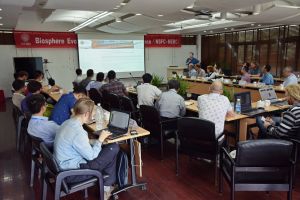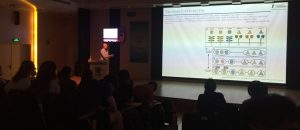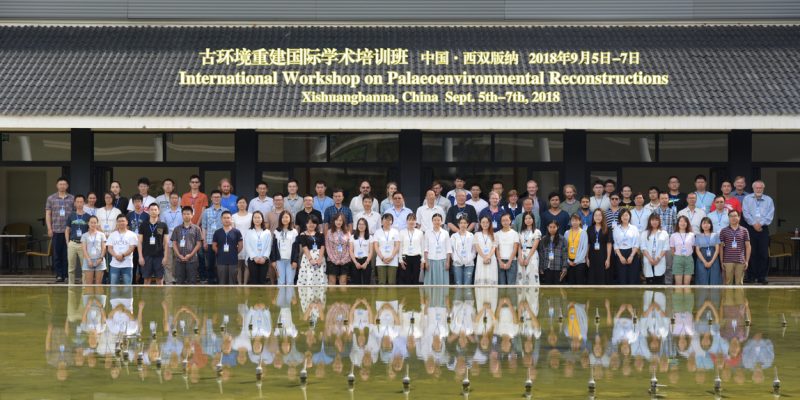September saw the UMBRELLA team all gather together in XTGB once again for a series of meeting’s, paper discussions and project targets, however we were also very excited to have a general meeting with the other two BETR projects (BETR – Proterozoic-Phanerozoic transition & BETR – Eco-PT) joining us for a general meeting and workshop. This brought together over 30 academics and experts in their field for some high level discussions and planning for the way forward and a further 60 PhD students from all over China to learn about some of the exciting science being conducted in all three projects as well as learning state-of-the-art environmental reconstruction techniques.

The work shop consisted of presentations and practicals (itinerary below) from both the BETR project academics as well as invited speakers given over the course of three days (download the lectures from the embedded links). The weather was surprisingly great with only one day of monsoonal rain, although still in the midst of the monsoon season it seemed the sun was shinning on us all by granting us a monsoon break period for the duration of our stay.
Workshop lectures:
- Day 1 (Wed. Sept 5th): AM (9am to 12am): Introduction
- Broad Concepts (Bob Spicer, Open University)
- Dating methods (Dan Condon, British Geological Survey)
- Contemporary Climate: Data and uncertainties(Alice Hughes, XTBG and Paul Valdes, Bristol University)
- Day 1 (Wed. Sept 5th) : PM (1pm to 5pm): Organic Biomarkers
- Organic proxies for paleoclimate(Sabine Lengger, Plymouth University)
- Day 2: (Thurs. Sept 6th) AM (9am to 12am): Biogeochemical Proxies
- Fundamentals (Rob Newton, Leeds University)
- Biogeochemical Proxies (Rob Newton, Leeds University)
- Case Study (Hu-Yue Song from China University of Geosciences)
- Day 2: (Thurs. Sept 6th) PM (1pm to 5pm): Terrestrial Proxies (1)
- The CLAMP environmental proxy and its applications (Bob Spicer/Teresa Spicer, Open University)
- CLAMP Practical: Quantitative Palaeoaltimetry (Bob Spicer/Teresa Spicer, Open University)
- CLAMP and Monsoons (Bob Spicer, Open University)
- Day 3: (Fri. Sept. 7th) AM (9am to 12am): Other Terrestrial Proxies
- Pollen Fundamentals (Shufeng Li, XTBG)
- Spores and Pollen: A BETR Approach. (Barry Lomax, Nottingham Univ.)
- Coexistence/Nearest Living Relative (Tao Su, XTBG)
- Day 3: (Fri. Sept 7th) PM (1pm to 5pm): Using these Proxies
- Application to Climate Modelling (Paul Valdes, Bristol University)
- Cretaceous Examples (Alex Farnsworth, Bristol University)
Further details of the workshop can be found on the BETR project page.

